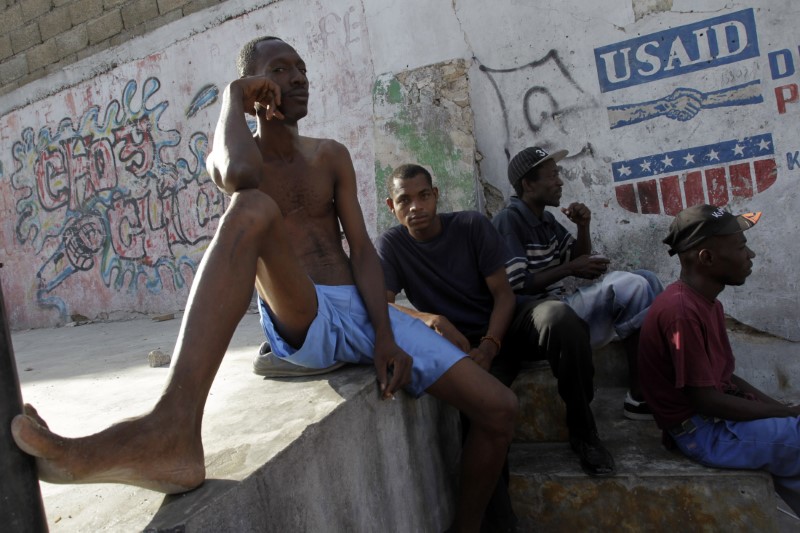By Arshad Mohammed
WASHINGTON (Reuters) - President Donald Trump's proposed 28 percent budget cut for U.S. diplomacy and foreign aid next year would preserve $3.1 billion in security aid to Israel but reduce funding for the United Nations, climate change and cultural exchange programs.
The budget proposal for the fiscal year beginning on Oct. 1 is a first shot in a battle with Congress - which controls the government's purse strings - that will play out over months and may yield spending levels far from those Trump requested.
Congress, controlled by Trump's fellow Republicans, may reject some or many of the cuts to the U.S. State Department and Agency for International Development (USAID) budgets, which pay for everything from maintaining America's diplomatic corps to fighting poverty, promoting human rights and improving health in foreign nations.
The White House is proposing a combined $25.6 billion budget for the State Department and USAID, a 28 percent reduction from current spending, according to documents provided by the White House on Thursday.
"It is time to prioritize the security and wellbeing of Americans, and to ask the rest of the world to step up and pay its fair share," Trump said in a letter introducing his budget, which calls for large increases in U.S. defense spending.
"This is a 'hard power' budget. It is not a 'soft power' budget," Mick Mulvaney, Trump's budget director, told reporters, referring to the president's desire to prioritize military power over the influence that can flow from development aid.
The budget also requests $12 billion in "Overseas Contingency Operations," or OCO, funding for extraordinary costs, chiefly in war zones such as Afghanistan, Iraq and Syria. No comparison was provided for the current year's OCO spending.
The White House did not provide many details in its "skinny" budget proposal, a precursor to a more detailed budget submission the White House has said it will produce in May.
The budget would provide $3.1 billion "to meet the security assistance commitment to Israel ... ensuring that Israel has the ability to defend itself from threats" and maintain its military superiority over more populous Arab neighbors.
It would also "maintain current commitments and all current patient levels on HIV/AIDS treatment" under PEPFAR, the President's Emergency Plan for AIDS Relief, which is the world's largest provider of AIDS-fighting medicine. The program has been credited with saving millions of lives and enjoys bipartisan support.
The budget would also meet U.S. commitments to the Global Fund for AIDS, Tuberculosis and Malaria, the documents said.
LOWER U.N. FUNDING
Without giving specifics, the documents laid out areas where the White House plans to save money, including by reducing U.S. funds to the United Nations and affiliated agencies "by setting the expectation that these organizations rein in costs and that the funding burden be shared more fairly among members."
The United States would cut its contribution to the U.N. budget by an unspecified amount, and the U.S. government would not pay for more than 25 percent of U.N. peacekeeping costs, the documents said.
The United States is the largest contributor to the United Nations, paying 22 percent of the $5.4 billion core U.N. budget and 28.5 percent of the $7.9 billion U.N. peacekeeping budget.
A senior U.N. Security Council diplomat, speaking on condition of anonymity before the budget's release, suggested that the U.S. cuts could contribute to a perception that Washington's role in the world was waning. Other diplomats have said China could fill the gap.
"There will be very significant implications if even a half of what is being speculated about becomes true. And those implications will be both financial, for those of us who will continue to pay into the U.N. as we are all required to do, but also geostrategic," the senior Security Council diplomat said.
Trump also plans to save money by eliminating the U.S. Global Climate Change Initiative, which among other things seeks to foster low-carbon economic growth, and by ceasing payments to U.N. climate change programs via the Green Climate fund.

Other savings would come from cutting funds to multilateral development banks such as the World Bank by about $650 million over three years from the Obama administration's commitments; reducing money for the State Department's Educational and Cultural Exchange Programs; turning some foreign military aid into loans from grants; and reorganizing and consolidating the State Department and USAID.